Energizing relationships between alumni associations and country teams to improve and enhance Fellows Projects was the focus of the “Alumni Associations: Advancing Regional Security Cooperation 2019,” held September 9-12 at the Daniel K. Inouye Asia-Pacific Center for Security Studies (DKI APCSS) in Honolulu.
Fifty-four alumni and U.S. Embassy representatives from 20 countries within the Indo-Pacific region attended the event. Forty percent of the participants were women.
Countries represented were Australia, Bangladesh, Cambodia, Fiji, Indonesia, Laos, Malaysia, Marshall Islands, Mongolia, Myanmar, Nepal, New Zealand, Papua-New Guinea, Philippines, Republic of Korea, Sri Lanka, Thailand, Tonga, the United States and Vietnam.
As individuals or as members of alumni associations or core groups, DKI APCSS alumni are catalysts for accomplishing our mission–achieving viable outcomes, common understanding and collaborative networks. One of the core and unique elements of the DKI APCSS executive education model that helps us accomplish our mission is the Fellows Project, an assignment given to Fellows attending DKI APCSS courses. Fellows select their own projects based on a security-related challenge or opportunity they have identified in their organization or nation.
“Given the diversity and inclusiveness of alumni associations or groups, they are virtually the perfect fit for prepping Fellows for APCSS and for mentoring their projects,” explained workshop lead John Gasner. “As a result of this workshop, each of the 20 country cohorts successfully and collaboratively developed actionable, and measurable plans and processes to increase the effectiveness of their respective alumni association or group. The plans also specifically addressed ways to leverage the connection and communication between the alumni association or core group and the U.S. Embassy staff. The great teamwork among participants helped enable success.”
According to workshop coordinator, Dr. Miemie Byrd, “Alumni Association and respective U.S. Country Team representatives demonstrated great energy, camaraderie and collaboration over the course of the workshop.”
The primary vehicle for meeting workshop goals was to focus on Fellows Projects, and how the alumni associations can better prepare individual Fellows and Cohorts for success.
“It was gratifying for us to see and hear how the alumni were using their experience, knowledge, and skills they had gained from their time at DKI APCSS to enhance their countries’ national goals, as well as, to ensure a Free and Open Indo-Pacific Region,” Byrd continued. “DKI APCSS educates, connects and empowers fellows and alumni to achieve success and positive impact on the regional security environment. The Alumni Associations play a crucial role in providing a platform, opportunity, and access to amplify the individual and cohort’s influence and in strengthening alumni network connections.”
A highlight of this workshop was the return of four alumni who provided presentations on their Fellows Projects including Ms. Doreen Joel, First Assistant Secretary, Ministry of Defence, Papua New Guinea (ASC 14-1); Ms. Dominica Mai, Senior Officer, Department of Community Development, Papua New Guinea (ASC 14-1); Ms. San San Maw, Director, Myanmar Red Cross Society (ASC 16-1) and Mr. Colin Smith, Supervising Custom Officer, New Zealand Custom Service (CS 10-1).
Alumni Chief John Gasner was the workshop lead. Here, he provides instructions to participants on the first day.
Alumni Association Workshop Intended Outcomes
- Alumni Associations sketched goals and objectives for becoming more productive in their contributions to security, peace, and prosperity.
- Alumni Associations, facilitated by their respective U.S. Country Teams, developed a more inclusive process for identifying meaningful Fellows Projects that advance their priorities, common values, and a Free and Open Indo-Pacific.
- Alumni Associations, facilitated by their respective U.S. Country Teams, developed detailed and tailored processes with milestones that support regular engagement, and the application of Fellows Projects to advance security and U.S.-Partner Nation cooperation.
- Participants developed criteria for successful alumni associations and Fellows Projects.
- Alumni and U.S. Embassies provided feedback to enhance DKI APCSS programs.
- Participating stakeholders committed to support Alumni Associations and Fellows/Cohort Projects when aligned with their mission/goals.
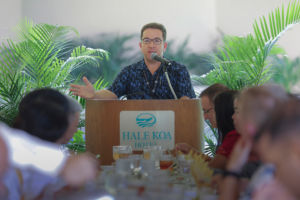
Mr. Christopher Burelli, Director, Alumni Programs, George C. Marshall European Center for Security Studies, shares his Center’s best practices with the participants at the Hale Koa luau gardens on the second day.
“My individual project was based around the development of the defense white paper,” explained Doreen Joel. “It was basically trying to incorporate woman in security in Papua New Guinea. In terms of inclusion of woman in the Papua New Guinea Defense Force, it was one hundred percent achieved by the defense white paper, which meant defense force is now recruiting woman in the PNG defense force, into the military, where in the past, it was not done.
“I felt we were not doing enough to address issues like violence against woman and children,” continued Joel. “I was basing my side project on trying to use the military civic action project to include an awareness program, so when the PNG defense force go into the rural communities to do civil action work like build a classroom or build a road, at the same time they can do awareness to the community, that it is important to respect your woman, because if you respect your woman and they’re happy, they look after (a) happy family and they rear children that respect(s) society and it contributes to the overall peace and security of the country and of the nation.”
Another DKI APCSS alumni described how his DKI APCSS experience has enriched his role in his position.
“I’ve found coming back here after nine years – honestly I feel like I never left – the feeling that I had that developed in that five weeks I was here before, (it) brought back to me the relevance of the respect and learning from other people,” said Colin Smith, one of the four alumni who presented on their Fellows Project. “And those are things that I’ve actually implemented back in my work, and this workshop has now has just reiterating that, and it’s reigniting not just my passion for my work, but also to bring other people from the New Zealand Customs Service into this program.
“I’m recommending very strongly in my report that we reengage with the Center,” continued Smith. “Other countries have the same problems that we have, and this is a really strong and powerful way of making change actually happen, not just theoretical, not just academic, but actually real-life practitioner work.”
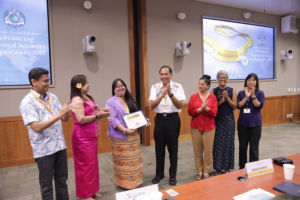
Director Gumataotao, workshop participants and faculty applaud Dr. Thin Thin Aye after presenting her with the DKI APCSS Alumni Achievement Award on the final day.
During the workshop, the participants also approved a new gold lanyard with red lettering, colors of Hawaiian royalty, to recognize and honor those alumni who had successfully implemented their project plans in addition to the completion certificates. DKI APCSS will award these new lanyards during upcoming alumni gathering events in the region.
The Daniel K. Inouye Asia-Pacific Center for Security Studies (DKI APCSS) is a U.S. Department of Defense institute that supports the policy objectives of the Office of the Secretary of Defense (OSD) and U.S. Indo-Pacific Command. The Center directly assists in developing key areas of OSD security cooperation and supports the U.S. effort to advance a Free and Open Indo-Pacific. The DKI APCSS mission is to build capacities, communities of interest, and develop and sustain relationships among security practitioners and national security establishments throughout the region. The Center educates, connects, and empowers security practitioners to advance Indo-Asia-Pacific security and generate meaningful policy outcomes through its regional outreach program.
Fellows Projects not only advance national goals, but also often support our shared value of having a Free and Open Indo-Pacific.


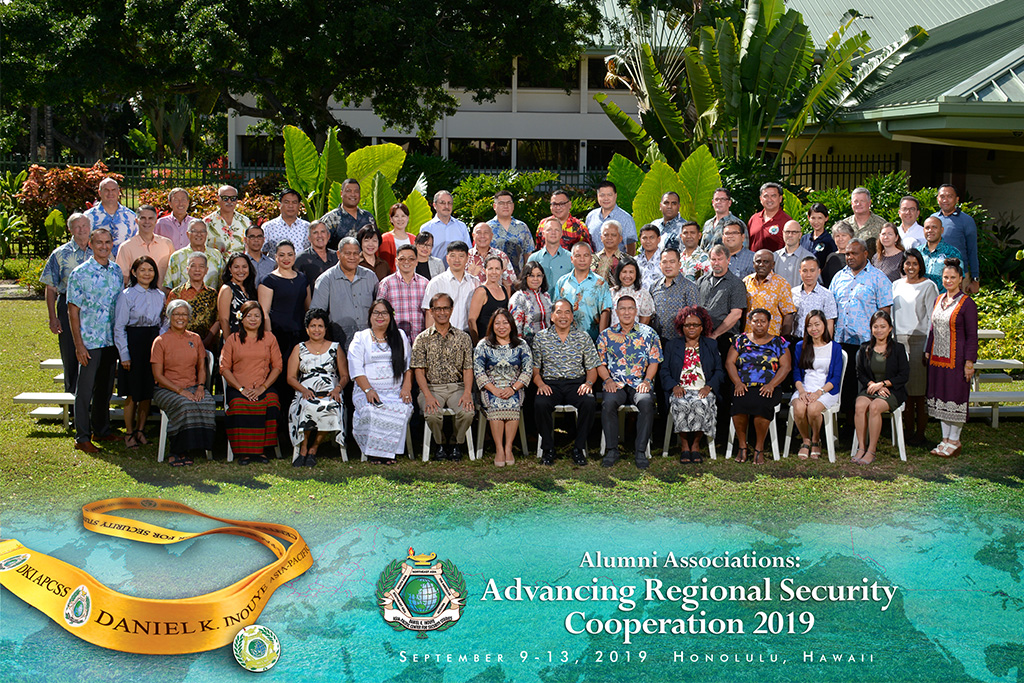
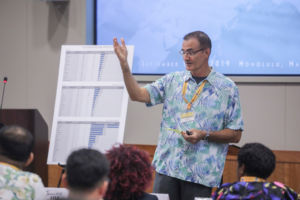
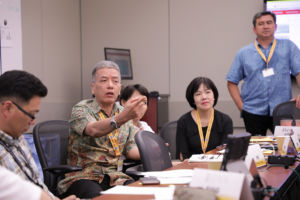
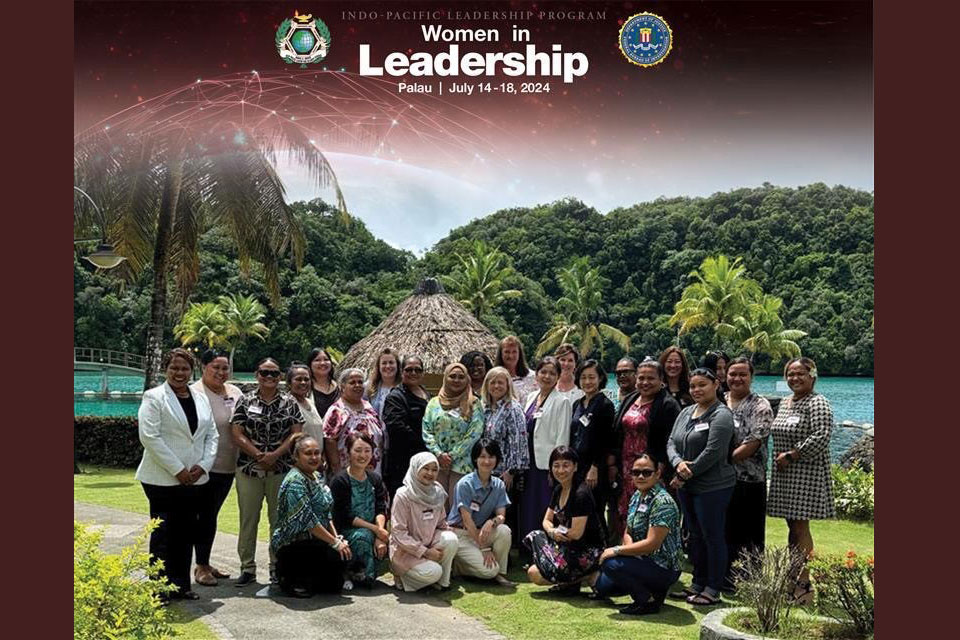
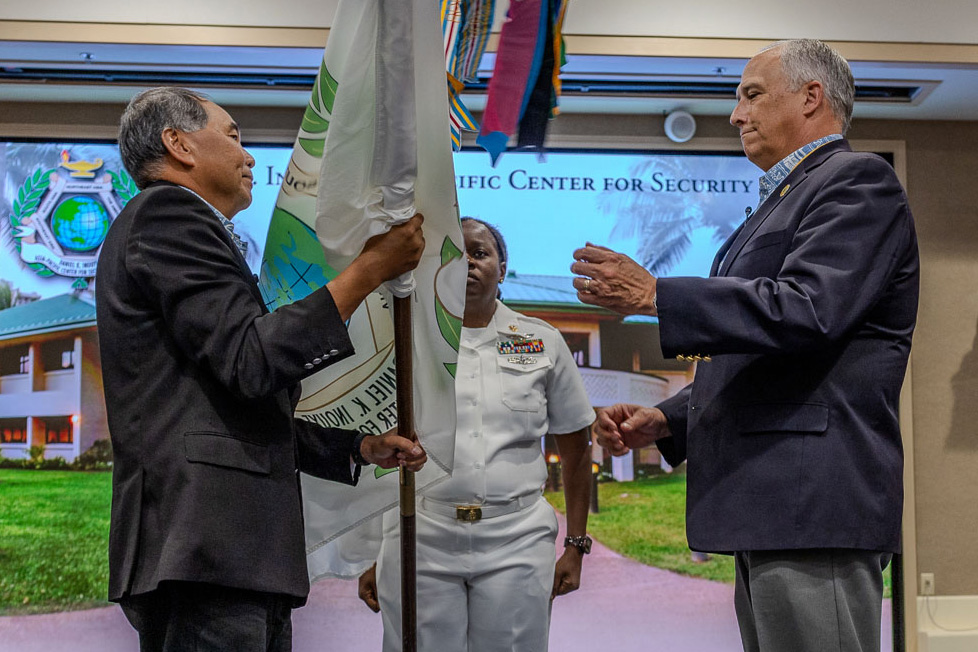
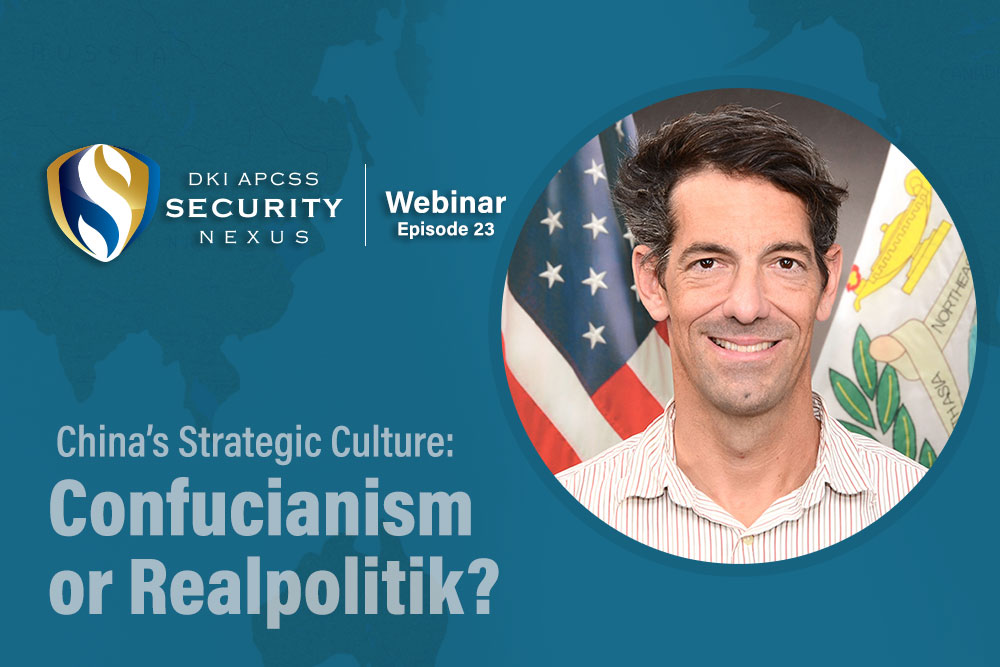




Leave A Comment